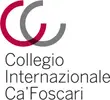-
- Professional Training Course, Summer School
- Posted 1 day ago
EcoMod School of Modeling and Data Science - Prague, Czech Republic
Starts 29 Jun at EcoMod in Prague, Czechia
-
- Summer School
- Posted 10 hours ago
GSERM Barcelona - Global School of Empirical Research Methods
Starts 29 Jun at University of St.Gallen and ESADE Business School in Barcelona, Spain
-
- Summer School
- Posted 6 days ago
Fundamentals of Graduate Economics and Finance
Starts 22 Jun at Department of Economics, University of Oxford in Oxford, United Kingdom
-
- Professional Training Course, Supplementary Course, Online Course
- Posted 1 week ago
Meta-Analysis in Stata - Live Online Training
Starts 16 Apr at TStat Training
-
- Summer School, Event, Supplementary Course, Workshop
- Posted 1 day ago
Institutional and Organizational Economics Academy (IOEA) 2026
Starts 6 Apr at Université Paris-Dauphine and Scientific Research Institute of Cargese in Cargèse, France
-
- Summer School
- Posted 1 week ago
Geoeconomics Uncovered: Theory Meets Evidence
Starts 1 Jun at Department of Economics, University of Oxford in Oxford, United Kingdom
-
- Summer School
- Posted 1 week ago
Oxford University Economics Summer School
Starts 7 Sep at Department of Economics, University of Oxford in Oxford, United Kingdom
-
- PhD Program, Supplementary Course, Program
- Posted 1 week ago
Advanced PhD Courses
at Kiel Institute for the World Economy (IFW) in Kiel, Germany
-
- Summer School
- (Online)
- Posted 4 days ago
Tools for Macroeconomists Summer School
Starts 3 Aug
-
- Professional Training Course, Online Course
- (Online)
- Posted 2 weeks ago
Up and Running in Stata - Live Online Training
Starts 23 Mar at TStat Training in Sulmona, Italy
-
- Professional Training Course, Supplementary Course, Online Course
- (Online)
- Posted 2 weeks ago
Maximising the Potential of Stata’s new Python Capabilities - Live Online Course
Starts 9 Apr at TStat Training
-
- Professional Training Course
- (Online)
- Posted 2 weeks ago
BSE Data Science for Economics Course - Executive Education
Starts 17 Feb at Barcelona School of Economics in Barcelona, Spain -
- Summer School
- Posted 5 days ago
Summer School on Bayesian Methods for Experimental Economics
Starts 18 Jun at Mohammed VI Polytechnic University in Rabat, Morocco
-
- Professional Training Course
- Posted 2 weeks ago
BSE Competition Economics Courses - Executive Education
Starts 9 Mar at Barcelona School of Economics in Barcelona, Spain
-
- Summer School
- Posted 2 weeks ago
Global School in Empirical Research Methods GSERM at the University of St.Gallen
Starts 20 Apr at University of St.Gallen in Sankt Gallen, Switzerland
-
- Professional Training Course
- (Online)
- Posted 2 weeks ago
BSE Macroeconometrics Courses - Executive Education
at Barcelona School of Economics in Barcelona, Spain -
- Event, Supplementary Course, Conference
- Posted 1 week ago
20 fellowships for advanced courses in Risk Analytics, funded by Collegio Internazionale Ca’ Foscari (CICF) in Venice
Starts 13 Apr at Collegio Internazionale Ca' Foscari in Venice, Italy
-
- Professional Training Course, Online Course
- Posted 1 week ago
Python for Finance: Investment Fundamentals & Data Analytics
at Coursera -
- Summer School
- Posted 2 weeks ago
Empirical Macroeconomics Summer School at Ghent University
Starts 24 Aug at Department of Economics, Ghent University in Gent, Belgium
-
- Professional Training Course, Supplementary Course, Online Course
- (Online)
- Posted 3 weeks ago
Visualizing Geospatial Data In Stata: Spatial Maps In Stata - Live Online Course
Starts 15 Jun at TStat Training
-
- Supplementary Course, Online Course
- (Online)
- Posted 2 weeks ago
Econometrics with EViews: Time Series, and Panel Data
at Udemy
-
- Summer School
- Posted 2 weeks ago
Thessaloniki Econometrics Summer School (Th.E.S.S.)
Starts 13 Jul at University of Macedonia in Thessaloníki, Greece
-
- Summer School
- Posted 3 weeks ago
Max Planck Summer School on the Political Economy of Conflict and Redistribution 2026
Starts 7 Sep at Max Planck Institute for Tax Law and Public Finance in Berlin, Germany
-
- Event, Supplementary Course, Conference
- Posted 3 weeks ago
CIML Training & Conference "Frontiers of Causal Inference and Machine Learning"
Starts 22 Apr at IMT School for Advanced Studies Lucca
-
- Summer School
- Posted 4 weeks ago
Tinbergen Institute Summer School
Starts 29 Jun at Tinbergen Institute (TI) in Amsterdam, Netherlands
Pagination

















